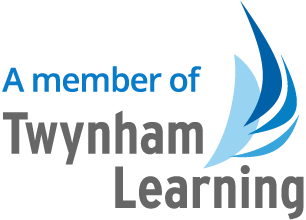History
A high-quality history education will help pupils gain a coherent knowledge and understanding of Britain’s past and that of the wider world. It should inspire pupils’ curiosity to know more about the past. Teaching should equip pupils to ask perceptive questions, think critically, weigh evidence, sift arguments, and develop perspective and judgement. History helps pupils to understand the complexity of people’s lives, the process of change, the diversity of societies and relationships between different groups, as well as their own identity and the challenges of their time.
Purpose of Study, History National Curriculum, 2014
Vision
Children should have the opportunity to “sit down in a good rich patch of history and stay there for a satisfying amount of time” – Marjory Reeves
Providing a World Class curriculum for students educated within Twynham Learning is fundamental to the educational vision of our Trust. In doing so our history curriculum vision is based on the core purpose of each of every TL school:
A curriculum that exists to serve its community, unlocking potential and allowing students to be successful; inspiring excellence in all that they do.
Through our teaching of history we also aim to inspire, excite and engage. At all TL schools we endeavour to create a culture and a love of learning in history and deliver our curriculum with passion and enthusiasm. We want pupils to carry this love of learning from year to year, both inside and outside the classroom. Our curriculum is designed for all staff to be able to deliver the content with confidence and we hope this will enable inspiring lessons to be delivered in all classrooms, no matter what key stage or school.
We encourage teachers across the trust to share best practice in order to continually improve the curriculum and its delivery.
Community Linked
We want to inspire a curiosity and lifelong interest in History and enable children to explore right and wrong, develop their own moral compass and empathy for those who came before us. Immersive history can help children experience the story of our local past, enabling them to walk in other peoples footsteps and appreciate the difference of experience. We want children from all TL schools to talk passionately and enthusiastically about the past and get lost in the exciting ‘stories’ both inside and outside the classroom. Christchurch and Dorset are rich in history and sharing these local stories are pivotal to forging links between young people and the local community. Our curriculum will provide learning experiences beyond the classroom and allow students to experience the past through trips to historic sites such as St. Catherine’s Hill, museums, residential stays, theatrical experiences and re-enactments. We will also enhance our trust community by enabling KS4 & KS5 students to teach and inspire students in KS1&2.

Informed Thinking
We want to enable students, through the disciplinary skills associated with history to be lifelong learners of history but also to be able to think critically about sources of information and start to build an understanding of history as a narrative that has been constructed. History can also be used to promote literacy and the reading of high quality information texts, introducing children to new vocabulary that will enable to them to access wider areas of the curriculum. Substantive concepts will be a key driver of our curriculum progression. We want to ensure students develop their knowledge, understanding and disciplinary skills, enabling them to become critical thinkers and true historians.
Outward Looking
Our students are growing up in a world where it is increasingly challenging to differentiate between fact and opinion, truth and falsehood. History and the knowledge acquired through its study could not be more relevant or important to our young people and our curriculum will open student’s eyes to a range of broad, global history.
We will encourage students to see the story of our nation’s past from a range of perspectives, helping them to understand different interpretations of colonial rule and empire. We will also ensure our curriculum promotes diversity and cultural difference, exposing young people to and helping them become global citizens. Helping students make connections is increasingly important considering the demographic of our schools.


